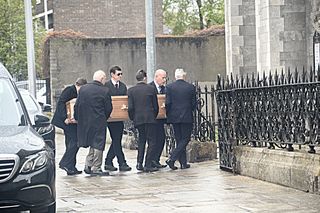Housing crisis 'biggest economic and social issue' as 10pc price increase predicted - report
Stock Image: Bloomberg
The lack of housing poses a “serious national challenge and threat” to the economy, a highly influential report warns the Government today.
Housing is “undoubtedly the biggest economic and social issue” confronting policy makers at the moment, according to the latest economic outlook from Friends First.
And the crisis is likely to continue for some time even if barriers to increase supply are removed.
The report’s author, economist Jim Power, predicts average house prices will rise by at least 10pc in 2019.
“Ireland needs to increase housing supply as a matter of urgency. That is the only real solution,” he says in the report.
The analysis comes as Taoiseach Leo Varadkar has been given six months by Fianna Fáil leader Micheál Martin to show solid improvement in the crisis.
Meanwhile, a Fine Gael thinktank says the Central Bank has “struggled to convince it is acting in the interests of the consumer”.
The party report cites the tracker mortgage debacle and the pricing of some licensed lending as examples of this failure.
In his Friends First report, Mr Power says the housing crisis is multi-faceted.
“The crisis in the housing market continues to dominate the domestic political agenda. There is still a significant shortage of owner-occupied housing, social housing and rental property.
“Against a background of limited supply and strong demand, house prices and private rents are rising strongly. National average house prices look set to rise by at least 10pc in 2018,” he says. The report says housing is a key element of national competitiveness, a fact that has been highlighted by recent data from the Central Statistics Office.
Mr Power says the global economy is in a relatively “sweet spot” with positive growth reflected in the domestic economy. But he warned of the potential dangers “in order to avoid repeating the political and economic pitfalls of the past”.
Mr Power lists a series of threats to the economy. He says there is an over-reliance on a small number of large companies in the corporate tax system, and inflated GDP measurements. Along with the chronic lack of housing, these are key risk factors that create a serious vulnerability to Ireland’s economy.
“While the momentum in the Irish economy is very strong at the moment, it is important for policy makers and all other stakeholders to pay proper attention to the challenges, threats and vulnerabilities and plan accordingly. In the run up to 2008, sufficient attention was not paid by policy makers to the inordinate dependence on the construction sector and when the external shock occurred, the economy was in a position of extreme vulnerability and suffered accordingly,” the report says.
Mr Power outlines the challenge facing policymakers.
“Demand is being driven higher by solid fundamentals such as population growth, employment creation, an improvement in credit availability, and a basic improvement in confidence about Ireland’s future. On the supply side, we are simply not building enough houses for a variety of reasons.
“Not surprisingly, the debate has started again about the bubble-like properties of the market. The argument about whether it is a bubble or not, is not really the point. The crunch for any market comes when it is hit by a shock, such as the sub-prime crisis back in 2008. If rising house prices have pushed debt levels higher, which is now happening, then the whole market and the economy becomes very vulnerable as was found out a decade ago. Ireland needs to increase housing supply as a matter of urgency. That is the only real solution,” he says.
House prices look set to rise by more than 10pc in 2018.
Join the Irish Independent WhatsApp channel
Stay up to date with all the latest news















